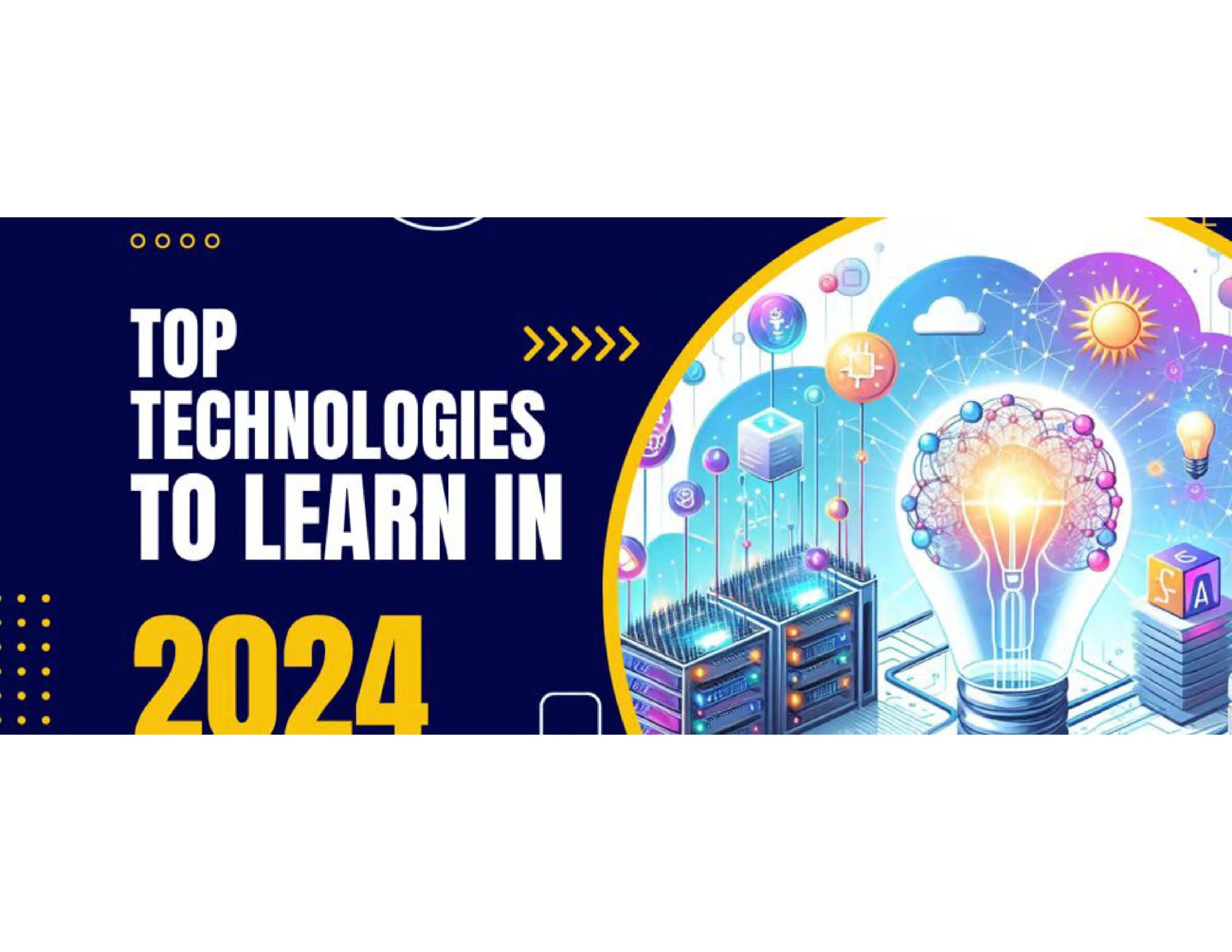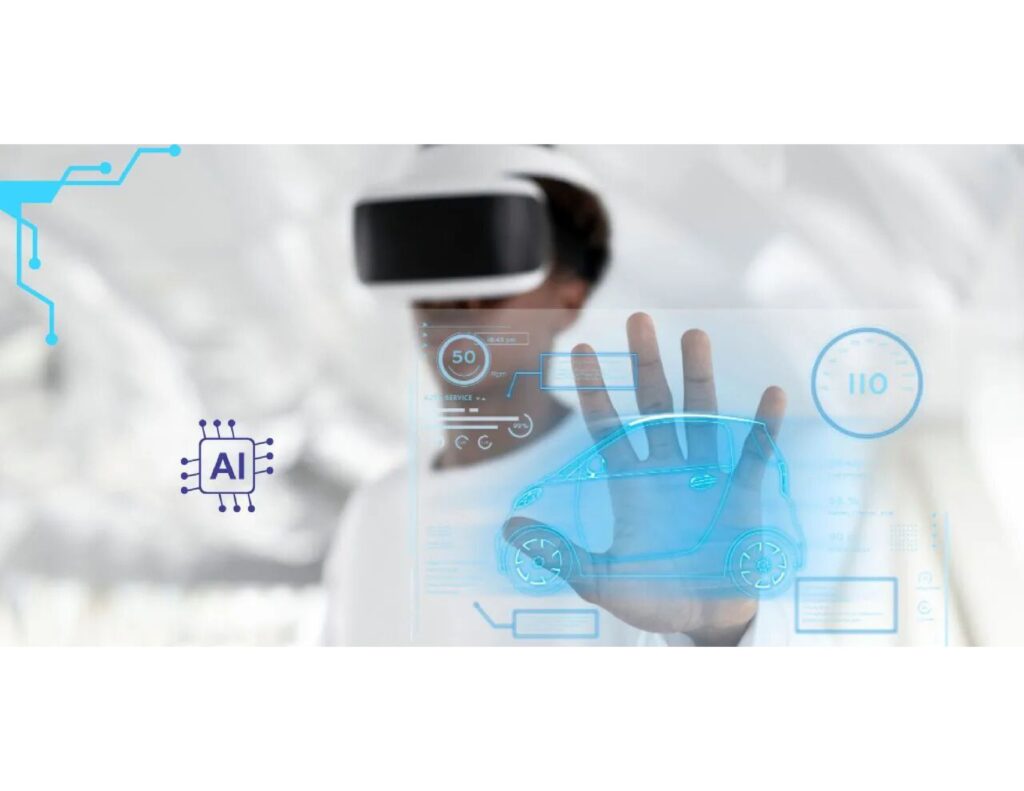
As we journey further into the digital age, technology continues to evolve at an unprecedented pace, driving transformation across industries and reshaping the way we interact with the world. From artificial intelligence and quantum computing to blockchain and augmented reality, the technological landscape of 2024 is brimming with innovation and potential. In this exploration, we delve into the top technology trends poised to make a significant impact in the year ahead.
1. Artificial Intelligence (AI) and Machine Learning:
Artificial intelligence and machine learning continue to be at the forefront of technological innovation, with applications spanning across various sectors, including healthcare, finance, retail, and manufacturing. In 2024, AI is expected to become even more sophisticated, powering advanced automation, predictive analytics, and personalized experiences. From chatbots and virtual assistants to autonomous vehicles and smart cities, AI-driven solutions are reshaping the way we live, work, and interact with technology.
2. Quantum Computing:
Quantum computing represents a paradigm shift in computational power, promising exponential increases in processing speed and capabilities. While still in its infancy, quantum computing is poised to revolutionize industries that rely heavily on complex calculations and data analysis, such as pharmaceuticals, cryptography, and materials science. In 2024, we anticipate significant advancements in quantum computing technology, paving the way for breakthroughs in simulation, optimization, and cryptography.
3. Blockchain and Decentralized Finance (DeFi):
Blockchain technology continues to disrupt traditional industries, offering secure, transparent, and decentralized solutions for various applications, including financial transactions, supply chain management, and identity verification. In 2024, we expect to see further adoption of blockchain technology, particularly in the realm of decentralized finance (DeFi), where blockchain-based platforms are redefining traditional banking and finance models. From digital currencies and smart contracts to tokenization and decentralized exchanges, blockchain is reshaping the future of finance.
4. Internet of Things (IoT) and Edge Computing:
The Internet of Things (IoT) ecosystem is expanding rapidly, with billions of interconnected devices generating vast amounts of data every day. In 2024, the focus will shift towards edge computing, where data processing and analysis occur closer to the source, reducing latency and improving efficiency. Edge computing enables real-time insights and actions, making it ideal for applications such as autonomous vehicles, smart infrastructure, and industrial automation.
5. Augmented Reality (AR) and Extended Reality (XR):
Augmented reality (AR) and extended reality (XR) technologies are blurring the lines between the physical and digital worlds, offering immersive and interactive experiences across various industries, including gaming, entertainment, education, and retail. In 2024, we anticipate broader adoption of AR and XR solutions, fueled by advancements in hardware, software, and content creation tools. From AR-enhanced shopping experiences to virtual collaboration platforms, AR and XR are redefining the way we engage with digital content and interact with our surroundings.
6. Cybersecurity and Privacy:
With the proliferation of connected devices and digital platforms, cybersecurity and privacy have become paramount concerns for individuals, businesses, and governments alike. In 2024, we expect to see increased emphasis on cybersecurity measures, including advanced encryption techniques, threat detection algorithms, and secure authentication methods. Additionally, regulations and standards around data privacy and protection are likely to become more stringent, driving organizations to prioritize data security and compliance.
7. Green Technology and Sustainable Solutions:
As the global community grapples with the challenges of climate change and environmental sustainability, the adoption of green technology and sustainable solutions is gaining momentum. In 2024, we anticipate greater investment in renewable energy sources, energy-efficient technologies, and eco-friendly practices across industries. From electric vehicles and smart grids to sustainable agriculture and circular economy initiatives, technology is playing a pivotal role in building a more sustainable future.
The technology trends shaping 2024 are diverse, dynamic, and full of potential. From artificial intelligence and quantum computing to blockchain and augmented reality, these innovations are driving transformation across industries, revolutionizing business models, and redefining the way we live and work in the digital age. As we embrace these technological advancements, it is essential to navigate the opportunities and challenges they present responsibly, ensuring that technology continues to serve as a force for positive change in our increasingly interconnected world.

Artificial Intelligence: Pioneering Automation and Insight Generation
Artificial Intelligence (AI) is spearheading a paradigm shift across industries. Through machine learning algorithms and data analytics, AI empowers businesses to automate tasks, enhance efficiency, and derive actionable insights from vast datasets. From predictive analytics in finance to personalized recommendations in e-commerce, AI is reshaping how businesses operate and engage with customers.
Internet of Things (IoT): Connecting the World in a Seamless Network
The Internet of Things (IoT) has emerged as a cornerstone of connectivity, interlinking devices and systems to create a unified ecosystem. With IoT, everyday objects can communicate, analyze data, and perform tasks autonomously, leading to increased efficiency and convenience. From smart homes and wearable devices to industrial automation, IoT is fostering innovation and transforming how we interact with technology.
Blockchain: Redefining Security and Transparency
Blockchain technology has garnered widespread attention for its potential to revolutionize digital transactions. By creating decentralized and immutable ledgers, blockchain ensures security, transparency, and integrity in various applications. From cryptocurrency transactions to supply chain management, blockchain is reshaping industries by eliminating intermediaries and enhancing trust in digital transactions.
Augmented Reality (AR) and Virtual Reality (VR): Immersive Experiences Redefined
Augmented Reality (AR) and Virtual Reality (VR) are blurring the lines between the physical and digital worlds, offering immersive experiences across industries. AR overlays digital information onto the real world, enriching user experiences in fields like gaming, education, and retail. VR, on the other hand, transports users to virtual environments, enabling immersive simulations for training, entertainment, and therapy. Together, AR and VR are revolutionizing how we interact with content and experience the world around us.
5G Technology: Empowering Connectivity and Innovation
The advent of 5G technology promises to revolutionize connectivity, enabling faster speeds, lower latency, and greater network capacity. With 5G, industries can leverage high-speed internet for enhanced communication, real-time data processing, and IoT deployments at scale. From autonomous vehicles and remote healthcare to smart cities and immersive entertainment, 5G technology is set to drive innovation and reshape entire industries.
Edge Computing: Redefining Data Processing and Latency
Edge computing is decentralizing data processing by bringing computing closer to the source of data generation. By reducing latency and optimizing bandwidth usage, edge computing enables real-time data analysis and decision-making. This technology is particularly crucial for applications requiring low latency, such as autonomous vehicles, industrial automation, and IoT devices. With edge computing, businesses can unlock new possibilities for innovation and efficiency in data-intensive operations.
These breakthrough technological trends are not only reshaping industries but also unlocking new opportunities for innovation and growth. By embracing AI, IoT, blockchain, AR/VR, 5G, and edge computing, businesses can stay ahead of the curve and drive meaningful transformation in the digital era. As these technologies continue to evolve, their impact on industries will only grow, paving the way for a future characterized by connectivity, efficiency, and innovation.


